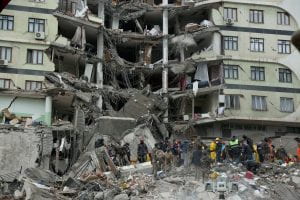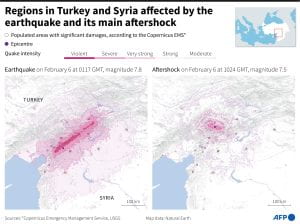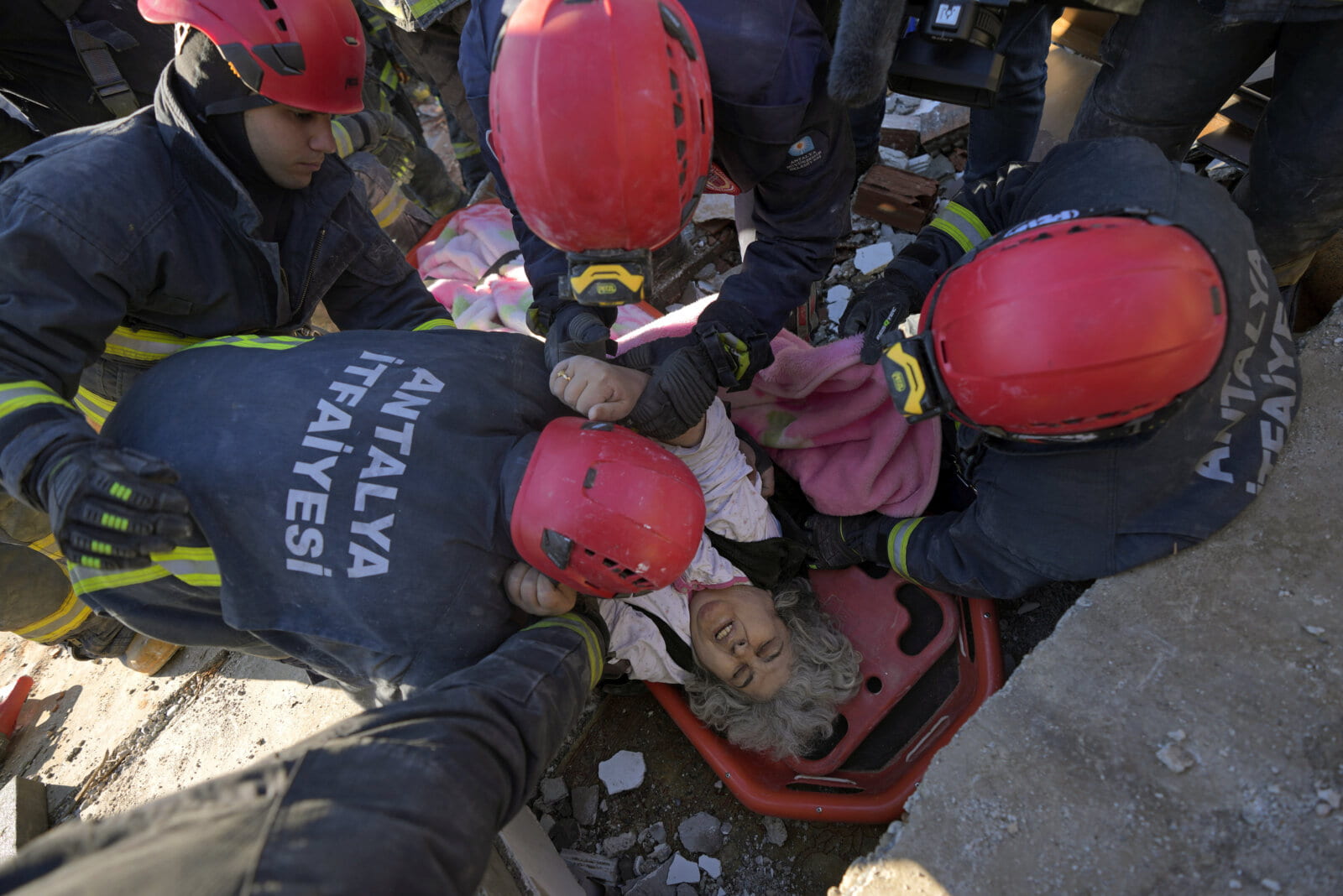Syria and Turkey have been impacted by one of the deadliest earthquakes that have been seen in the Middle East-North Africa (MENA) region. The death toll has surpassed 20,000 and continues to rise considerably, not accounting for the thousands injured. Some of the areas this earthquake has hit are some of the most vulnerable areas in the world. The conditions in both countries are indescribable; with homes destroyed, hospitals at capacity, and limited supplies, the need for help has become critical. It was noted that due to the destruction of the hospitals, and the lack of staff and supplies, patients have had to receive medical attention on the hospital floors. At this point, any type of aid is scarce in both countries. It is vital that everyone supports in any possible way. At the end of this post, you will find numerous links on how to help, whether through donation, reading, reposting, etc. Anything you can do to help is urged. Pass these resources along to your friends, family, colleagues, etc. The most minor contribution makes the most significant difference.

What is Happening?
An earthquake with a magnitude of 7.8 struck early Monday morning at 4:17 AM in the Turkish city of Gaziantep, 150 miles away from the Syrian border. This earthquake led to more than 300 aftershocks that rumbled, with one following the initial earthquake just 9 hours later at 1:25 PM and carrying a magnitude of 7.5. Earthquakes are measured using a magnitude scale ranging from 2.5 or less to 8.0 or greater. The Turkey-Syria earthquake reached a magnitude of 7.8 following a shock of 7.5. Meaning this was a significant earthquake that yields severe and destructive damage. This has been one of the worst earthquakes to hit the region since the early 1900s. Along with the destruction of this horrific disaster, the regions are currently facing a winter storm. The temperatures in both Turkey and Syria have dropped tremendously to below 21 degrees Fahrenheit. Rescuers have noted that the weather conditions are so bad that those trapped under the rubble have been found frozen to death.

Who is Sending Aid?
Two days have passed since the initial disaster, and the death toll continues to rise. Turkey currently has tens of thousands of rescue teams and aid personnel helping to search for survivors. More than 24 countries have sent aid, help, or rescue teams to Turkey to rescue as many people as possible. With the window closing for the survival of the many lives still stuck under the rubble, the rescue teams are still not losing hope and asking for aid and help. With all the help being given to Turkey, there is an absence found in Syria. Many political and logistical issues hinder aid from being given to Syrians. Since the Syrian Civil War, many countries, such as the EU and USA, have posed sanctions on Syria, and many border points are blocked. At this time, many are urging the sanctions to be removed as it hinders aid to Syria. In times of crisis, we can look to our governments for help, but that is not the case for the Syrian people, which is why it is so critical and necessary to support any in any way you can. Syria is still undergoing and recovering from a Civil War that has been happening for the last 10 years. Many Syrians have been displaced and have become refugees, most residing in Turkey, making the country the world’s biggest refugee host country, with over 3 million Syrian refugees living there. El-Mostafa Benlamlih, UN Resident and Humanitarian coordination for Syria stated: “Sadly, needs are rising rapidly in Syria, and not everyone who requires assistance is visible. Over 75% of all sub-districts in the country are classified as being under severe, extreme, or catastrophic conditions…We must act quickly to ensure more communities do not slide into an inescapable loop of deprivation and negative coping mechanisms.” The areas of Syria affected are some of the worst. Millions of individuals were already displaced in the northwest portion of the country house. With aid in Syria already being scarce, there are many worries and urgencies surrounding the need for humanitarian care.

Recommendations:
It is urgent that you can do anything you can to help. Whether that is donating $1, reposting a donation link, or just speaking about it. The current condition these people are living in is unimaginable, so it is vital to help in any possible way. A Syrian journalist has spoken about his experience and current grief. Mohammad Haj Bakri lost multiple family members due to this national disaster. His brother and his three children, his sister and her son, all died under the rubble of collapsed buildings. Although there is international support and awareness for those affected by the earthquakes, I urge you to support them still as much as possible. The aid given to these survivors will be for the current time and post-quake. Below are links to donation sites, articles on how to help, and additional links with information on the conditions.
“How to Help Victims of the Earthquake” New York Times Article by Ben Shpigel:
- This article showcases which donation links to use; check out Charity Navigator and GuideStar to ensure that the non-profits you donate to are reliable.
- This article exemplifies the urgency of supporting the people of this horrific disaster. This piece explains the stories of those who went through the earthquake, had family members present or had their loved ones die.
- A humanitarian aid organization that operates in the rebel-controlled areas of Syria, also known as Syria’s Civil Defense. They are the leading group for helping victims and displaced persons throughout the Syrian Civil war. You can find the link to donate here.
There are countless humanitarian groups accepting donations for those affected by the earthquake. For more resources, check out the links below:

